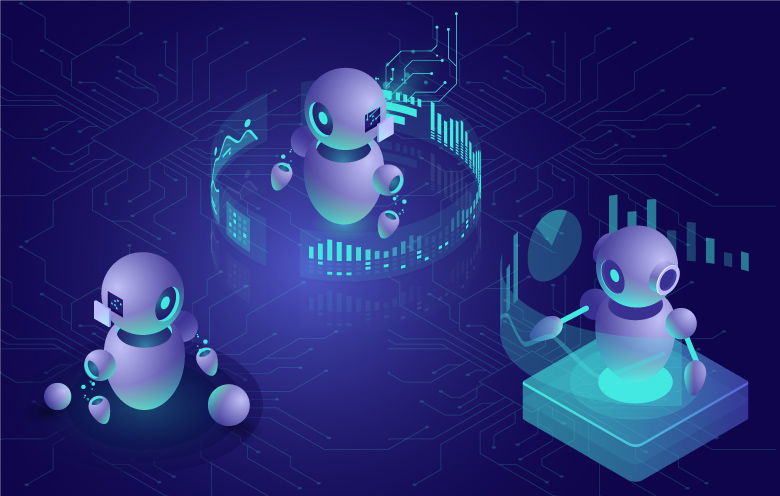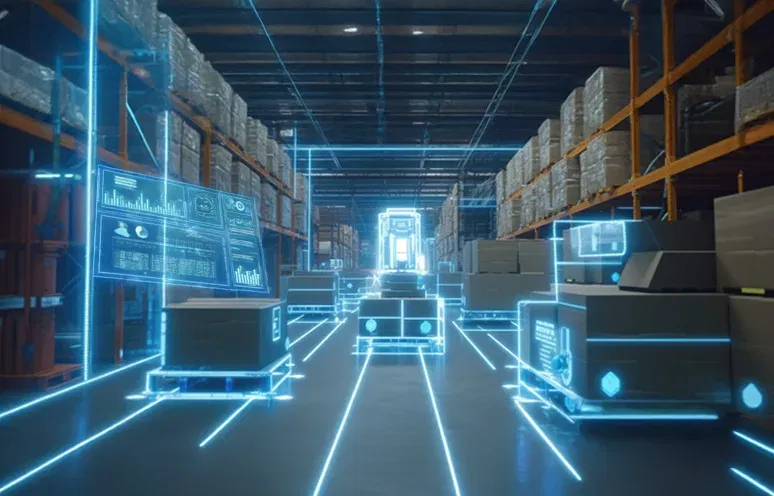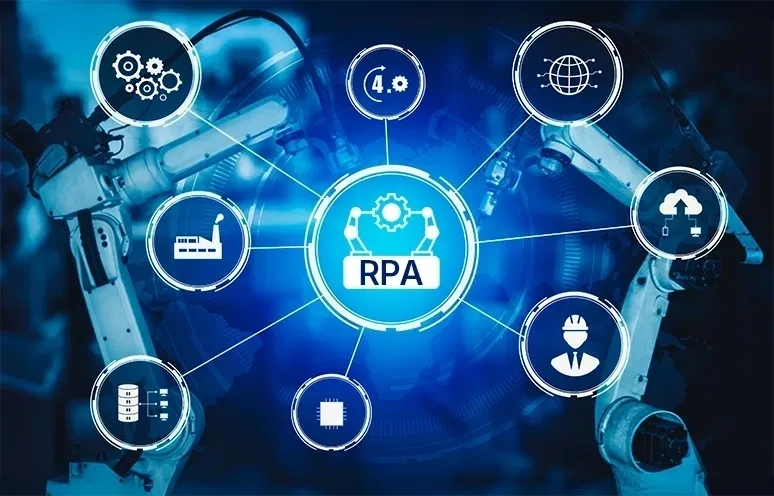How many cumbersome and repetitive tasks does your company still operate manually? Doing such jobs manually means wasting your productive hours that could be utilized in accomplishing more fundamental tasks.
According to newly released data from SnapLogic, 90% of employees are being burdened with boring and repetitive tasks which could be easily automated.
This statistic above proves that many organizations are still loading their employees with mundane tasks that can be easily automated. Just imagine how much time can be saved if these jobs were performed in an automated manner. Robotic process automation (RPA) helps you to do exactly that.
But what exactly is RPA?
It is a process of automating business operations with the help of software robots that mimic human actions to perform certain repetitive and programmable processes. RPA solutions give organizations the capability to handle high-volume, repeatable tasks efficiently without any human intervention. This allows companies to streamline their workflows and help them to focus on more important tasks.
RPA is a combination of three technologies: screen scraping, workflow automation and artificial intelligence (AI).
- Screen scraping is programming that allows collecting screen display data from legacy applications and use that data into a more modern user interface.
- Workflow automation software eliminates the need to manually process administrative tasks like data entry and helps with increased process speed, efficiency and accuracy.
- AI gives system the ability to perform tasks without the need of any human interference.
Benefits of RPA
RPA is gaining traction because it helps companies in improving business efficiency, making employees more productive and meeting the bottom-line.
Robotic process automation can help enterprises to save costs by 25-50%. – UIPath
By automating mundane tasks, businesses can:
- Direct their employees towards higher value-added activities
- Improve productivity and minimize errors
- Increase accuracy, scalability and flexibility in business processes
- Allow processes to be completed more rapidly
- Increase employee engagement
- Reduce operational risks
- Increase expertise in core domain
- Drive process improvement
RPA use cases
Data entry, update, and migration
There are some important functions that legacy systems perform in companies. Such legacy systems need an interface to communicate with other systems in order to pull relevant data. However, not all traditional systems have the capability to do so. Therefore, often, such tasks are done manually by transferring data via CSV files.
In such a scenario, RPA comes to your rescue as it allows you to eliminate this manual labor and the potential clerical errors associated with it. Additionally, when data is updated autonomously, organizations achieve better data analysis and decision-making.
Extracting data from PDFs
There might be instances where documents are either completely full of text or a mixture of text and images. RPA allows businesses to extract data from all such documents including images.
With the help of screen scraping, optical character recognition (OCR) and basic pattern recognition technologies, companies can extract data from almost any format. This reduces the need for keying in data.
Report preparation
Every business is required to regularly generate reports to inform managers about performances of the employees or performance of their respective departments. Though it is not labor intensive, generating, analyzing and sending reports takes a lot of time. RPA can easily help companies to auto-generate reports, analyze it and based on the content of the report, send it to respective people.
For example, a report generated to understand the sales of the first quarter will be auto-generated based on the provided criteria and will be sent to the sales team.
Customer onboarding
Customer onboarding process is essential for companies to reduce churn and to get customers started with their products or services. With OCR and cognitive automation, businesses can carry out different functions of the onboarding process allowing the employees to focus on improving the customer experience.
Procure-to-pay
Extracting data from invoices, vendors, and systems like ERP and CRM requires human intervention as many of the legacy systems do not provide easy integration methods. These integration gaps can be filled with RPA software bots as they work on the front-end.
With a fully automated procure-to-pay system, firms are ensured that they have a centralized system to extract information from.
Automated testing
Tests can be built into software. However, it is important to test from a user perspective too. Such tests cost time and resources when performed manually. But, when testing is automated with RPA, using production data, companies can save a lot of time and allocate resources to perform more crucial tasks.
Bank statement reconciliation
The process of extracting data from bank statements for reconciling and comparing with a company’s records is often done manually through traditional systems like spreadsheets. This leads to errors like data mismatch or lost transaction. Such mistakes can be efficiently avoided by automating the entire process.
Claims processing
Customers request to process their claims at the time of emergency. Hence, they expect the process to be completed with precision and speed. There are certain issues with claim processing when done manually like excess time consumed in sorting through different formats of data.
RPA bots take in unstructured data from different forms and efficiently process claims based on pre-defined rules. This approach takes care of all major issues with manual claims processing including claim verification.
Achieve more in less time with RPA
RPA can be overlaid on existing systems, giving you the benefit of utilizing the current infrastructure. At Softweb, we help you in your digital transformation journey by allowing processes to be completed rapidly and with higher accuracy. Our RPA services enable you with intelligent automation of tasks and help you to reduce operational costs.
To learn more about RPA solutions and their benefits, you can talk to our automation experts.



